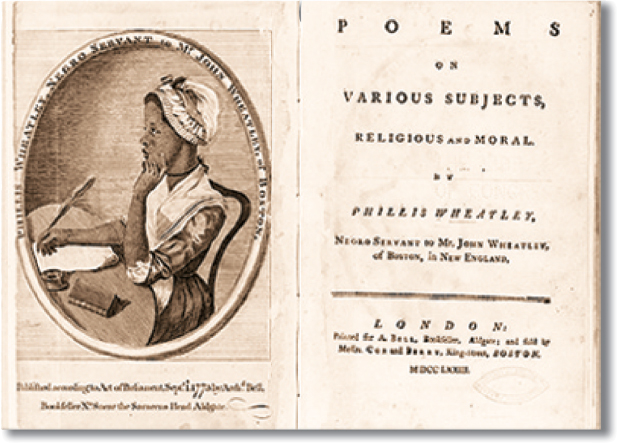How did enslaved people in the colonies react to the stirrings of revolution?
Printed Page 166

Figure false: Phillis Wheatley's Title Page
Figure false: Phillis, born in Africa, was sold into slavery to John Wheatley of Boston at age seven. She published her first poem at age twelve, in 1766. In 1773, her master took her to London, where Poems on Various Subjects, Religious and Moral was published, gaining her great literary notice. Library of Congress.
BEFORE THE SECOND CONTINENTAL CONGRESS could meet, violence and bloodshed came to Massachusetts in the towns of Lexington and Concord. Fearing domestic insurrection, General Thomas Gage sent his soldiers there to capture an ammunition depot, but New England farmers mobilized against an intrusive power they feared would enslave them. To the south, a different and inverted version of the same story began to unfold, as thousands of enslaved black men and women seized an unprecedented opportunity to mount a different kind of insurrection — against planter-patriots who looked over their shoulders uneasily whenever they called out for liberty from the British.
CHRONOLOGY
1773
- – Phillis Wheatley's Poems on Various Subjects, Religious and Moral is published in London.
1775
- – Battles of Lexington and Concord.
- – Lord Dunmore promises freedom to defecting slaves.